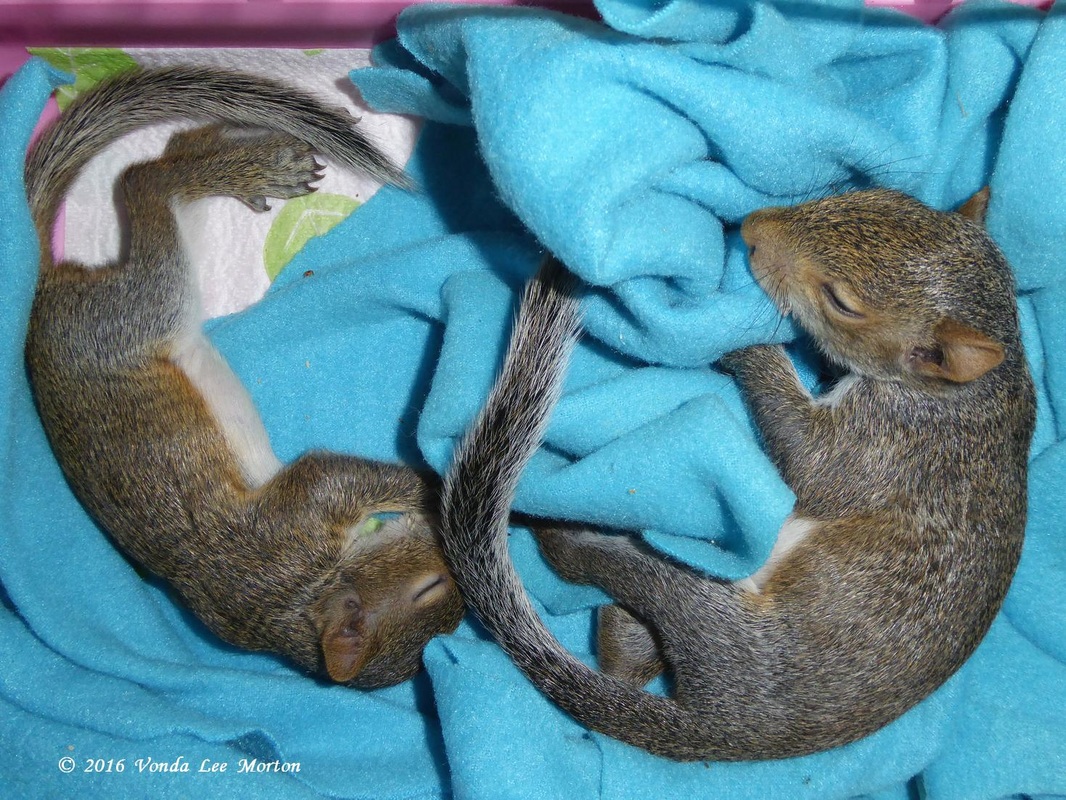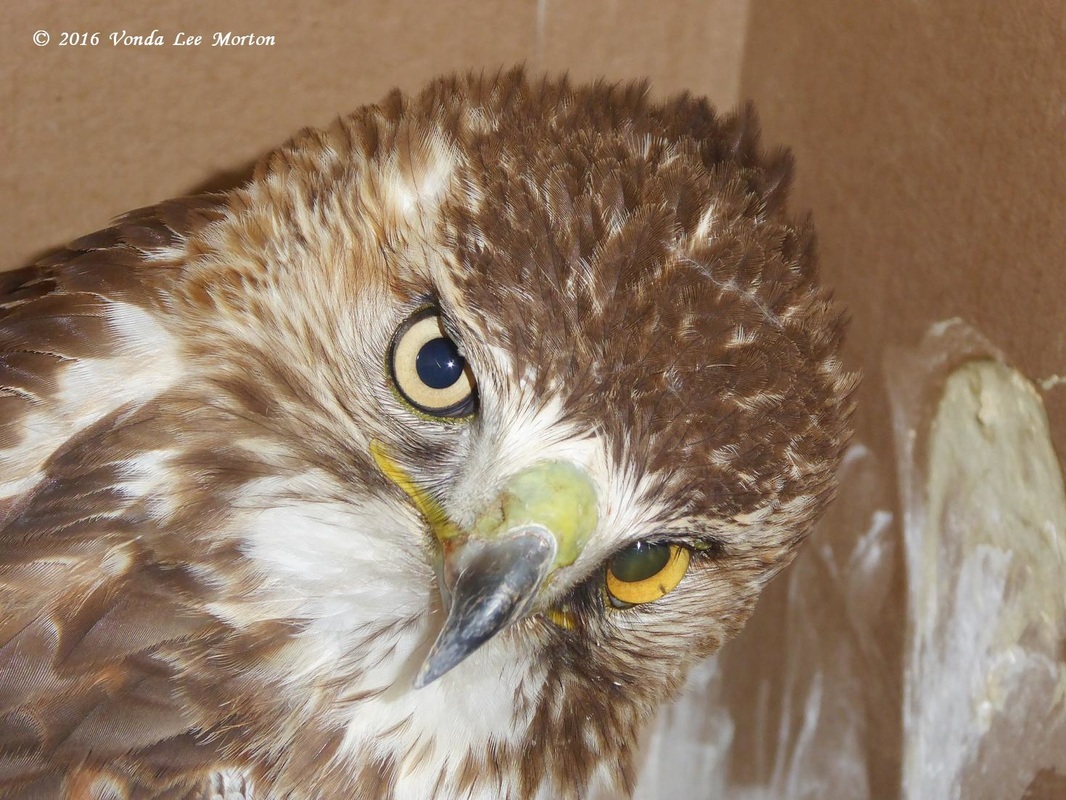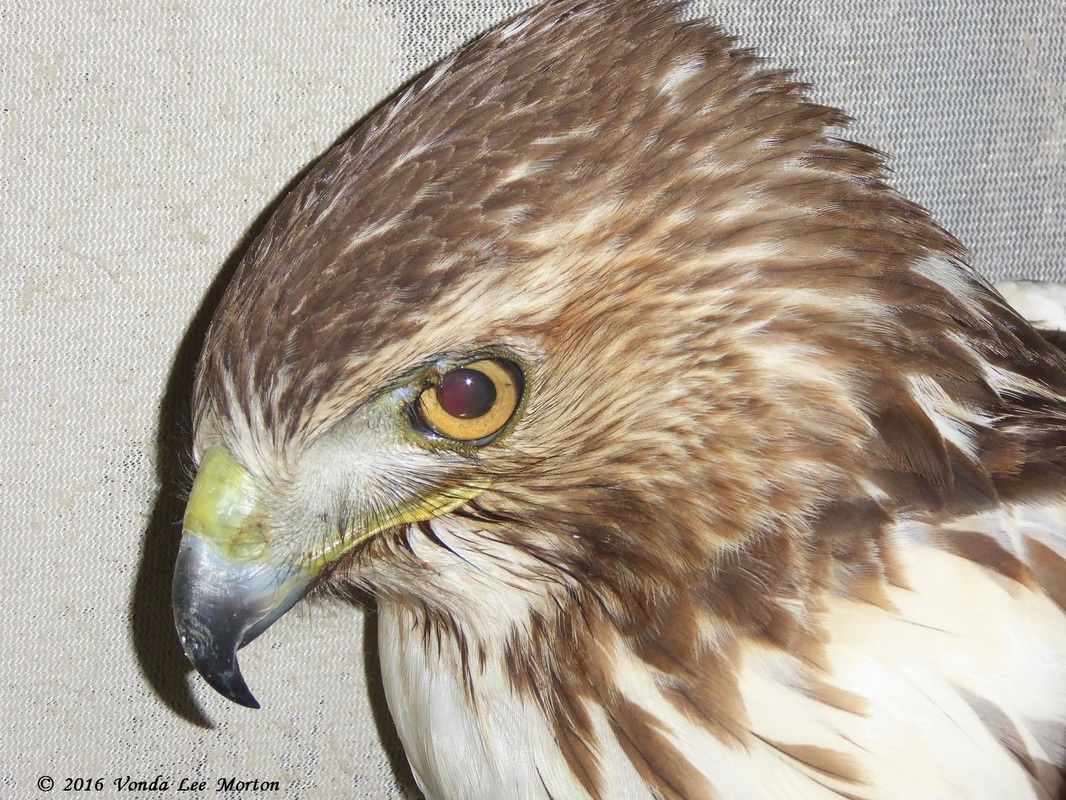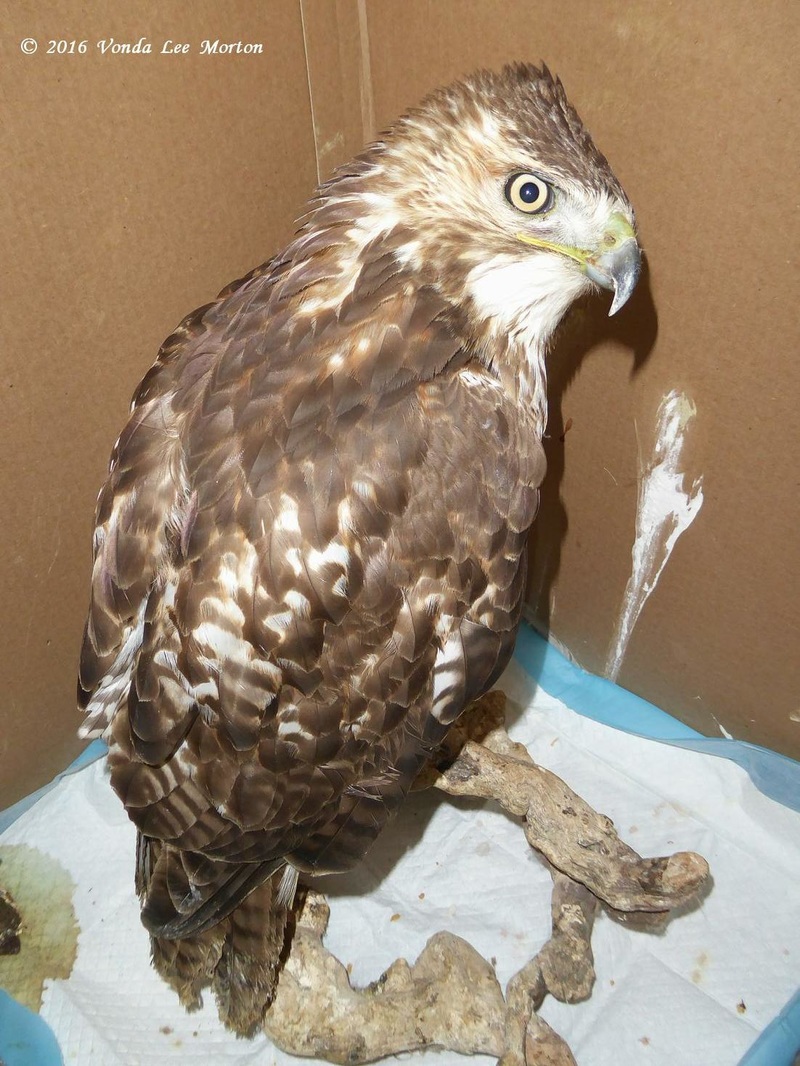That leaves us with the gray squirrels, who continue to develop as they should. Both have open eyes now, even though the pictorial evidence doesn’t fully support this. For the first couple of weeks after their eyes open, nothing really changes: they wake up long enough to eat and then crash till the next feeding. When they begin staying awake and nibbling on solids, they can go into a larger pen with room to move and climb, beginning the process of readying them for their eventual release at 12 weeks.
- First and most importantly, AVOID THE USE OF PESTICIDES/INSECTICIDES. These poisons kill indiscriminately, taking out the beneficial as well as the harmful insects and “weeds” (for the record, dandelions are NOT weeds; they’re extremely beneficial to wildlife) and killing both adult and baby birds, either from eating poisoned insects or ingesting the poisons when they groom them off their feathers.
- Just as importantly, KEEP YOUR CATS INDOORS. Cats will climb trees to prey on weak, helpless nestling birds and they will pounce with alacrity on newly-fledged, poorly-flighted birds. It IS possible to love both cats and birds; just be a responsible cat owner and keep your moggies inside and away from the local bird population.
- LOOK CAREFULLY BEFORE YOU TRIM TREES/LIMBS. Some nests are fairly obvious; cavity nests such as woodpeckers and bluebirds use are not. And a hummingbird nest is so tiny as to be almost invisible unless you look really hard. And don’t rely on the observations of tree trimming services; they’re there to make money. If they don’t trim, they don’t get paid, so they’re not gonna look too hard for nests.
- LEAVE A FEW BRUSH PILES IN THE BACK CORNERS OF YOUR YARD. These are great for newly fledged birds to take refuge in.
- Likewise, LEAVE THOSE SNAGS (DEAD TREES) ALONE. Their soft wood is perfect for cavity nesters like woodpeckers and bluebirds.
- CHECK YOUR YARD/FIELD CAREFULLY BEFORE YOU MOW. Various birds, like common ground doves and bobwhite quail (which are listed as near-threatened status because of their declining numbers), are ground nesters and may have nests in the grass. Even if you don’t have ground nesters, there may be fledglings or unnested babies in the yard/field.
- If you find unnested babies, DON’T PANIC. Unless they’re injured or in immediate danger—covered with ants or about to become a predator’s snack, for example—leave them where they are and observe from a safe distance, to allow the parents to feel safe coming to their baby, for about 30-45 minutes. If you see no signs of the parents and cannot locate the nest (or if the nest is out of reach) to re-nest the babies, THEN call your local federally licensed bird rehabber ASAP.
- If you find that you must call your local bird rehabber, DON’T GIVE THOSE BABIES FOOD OR WATER UNLESS DIRECTED TO DO SO BY THE REHABBER. The wrong foods can kill baby birds very quickly, and it’s very easy for both food and water to enter their lungs and literally drown them. It’s called aspiration and if the bird is lucky it’ll just end up with aspiration pneumonia; if it’s not so lucky it will quite literally drown from the fluids you’ve sent into the lungs in an ill-guided attempt to help the bird. Bread or bread and milk is NEVER an appropriate food, and not all birds feed their young worms.
- FLEDGLINGS—YOUNG BIRDS JUST OUT OF THE NEST AND STILL LEARNING TO FLY—GENERALLY DO NOT REQUIRE INTERVENTION. They will be fully feathered with very short tail feathers. They’re also poor flyers at this point, but their parents are feeding them and encouraging them to move to higher and safer ground. Only intervene with a fledgling if you see that it is injured, in danger from a predator or if after 30-45 minutes of observation from a safe distance you see no parents feeding it.
- OFFER A VARIETY OF VERY SHALLOW WATER DISHES, IDEALLY NEAR LOW-HANGING LIMBS/PERCHES. Birds love to drink and bathe, but smallish, shallow dishes with a few rocks in the bottom will ensure that no fledglings accidentally drown in your water dishes. Wet birds aren't good flyers so make sure there are easily accessible low limbs/perches near your water dishes.




 RSS Feed
RSS Feed
